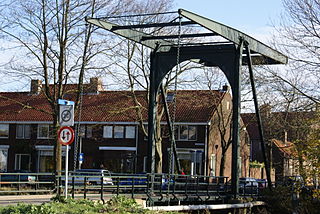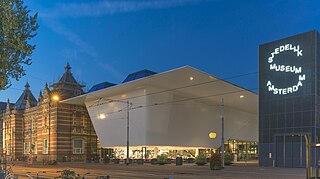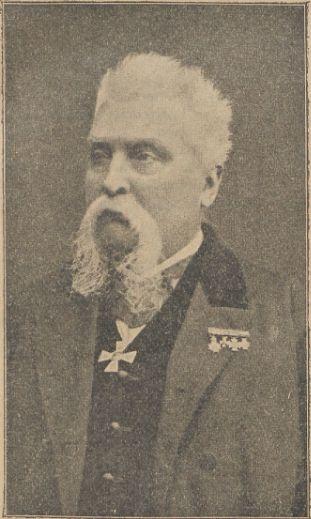Guido van der Werve | |
|---|---|
 Guido van der Werve, IFFR (2013) | |
| Born | 1977 Papendrecht, Netherlands |
| Nationality | Dutch |
| Occupation(s) | Filmmaker, visual artist |
Guido van der Werve (born 1977) is a Dutch filmmaker and visual artist.
Guido van der Werve | |
|---|---|
 Guido van der Werve, IFFR (2013) | |
| Born | 1977 Papendrecht, Netherlands |
| Nationality | Dutch |
| Occupation(s) | Filmmaker, visual artist |
Guido van der Werve (born 1977) is a Dutch filmmaker and visual artist.
Van der Werve was born in Papendrecht, the Netherlands [1] and currently lives and works in Finland and Berlin. He pursued studies in industrial design, archaeology, music composition, and Russian language and literature at several universities in the Netherlands before beginning to create his first video documented performances at the Gerrit Rietveld Academy around 2000. Van der Werve initially started out doing performances but because he disliked the live aspect, he started to film them with simple video cameras. The registrations became gradually more cinematic and professional over the years. Having a background in music Van der Werve tries to create visual art, which communicates as direct as music. In 2006 Van der Werve did a residency at the Rijksakademie van Beeldende Kunsten in Amsterdam. In 2008 he moved to New York. From 2010 on Van der Werve has been living in the Finnish countryside and Berlin. Van der Werve is an avid runner and triathlete.
In 2016 he had a serious accident. Realizing an inferiority complex saved his life, he made an auto fiction feature film out of it.
Van der Werve has created a variety of works, including a series of film and videos and a musical composition titled by number in chronological order from two to seventeen. Number ten and number fifteen being monographs each about the five years of works prior to the book.
Works include:
Besides his films, Guido van der Werve did several live performances of the music of his films accompanied by an orchestra.
In 2011, Van der Werve performed at the grand opening program for the St. Louis location of the World Chess Hall of Fame. He performed his piece, "Number Twelve : Chess Piano Concert in Three Movements" which combined the mechanics of a piano with the layout of a traditional chess board. [2]
In 2008 he created "Nummer acht :, everything is going to be alright" where he is seen walking 15 metres (49 ft) in front of an icebreaker. [3]
For his film "Number Nine : the day I didn't turn with the world", he went to the geographical North Pole where he turned with the sun for 24 hours, thus not turning with the world for one day. [4] This marked the start of a series of endurance based works:
In 2009 he started the annual Running for Rachmaninoff run, running from his gallery, Luhring Augustine, to the grave of composer Sergei Rachmaninoff in Valhalla in Upstate NY, a 55 km run. The first year only Guido completed the run, in 2011 he finished with 2 people and in 2012 three persons managed to complete the run. Participants have to carry with them a booklet of Chamomile flowers to be placed on the grave. [5] The 2015-2016 Running for Rachmanninoff run was run by the artist alone back to back on December 31 of 2015 and January 1 of 2016 [6]
A documentation of this run (on slides) is the first part of "Nummer dertien", the first performance through which he started incorporating sports in his art. [7] Other parts of "Nummer dertien" feature Van der Werve in a 12-hour video work in which the artist is running around his house in Finland for 12 hours and climbing to the summit of Aconcagua and "Nummer veertien" where he completed a 1600 km triathlon (7x the ironman distance) from Warshaw to Paris. [8] Music often plays a key role in van der Werve's work, being trained as a classical musician he seeks for a similar directness to his art as music has. [1]
Works by Guido van der Werve are a.o. in the collections of The Museum of Modern Art in New York, [9] Stedelijk Museum in Amsterdam, the Netherlands, Hirshhorn Museum, Washington D.C., Museum Boijmans Van Beuningen, Rotterdam, The Netherlands and Museum Catharijne Convent, Utrecht, The Netherlands. [10]
On Nummer Veertien: Tineke Reijnders in Ons Erfdeel [11]
Jerry Saltz in New York magazine [8]
Christopher Knight in the Los Angeles Times [12]
Roberta Smith in the New York Times [13]
On Nummer acht and Nummer negen Jessica Dawson in the Washington Post [14]
Raul Martinez in Art in America [15]
2013
2012
2011
2010
2009
2008
2007
2006
2005
2004
2003
Guido van der Werve is represented by:

Papendrecht is a town and municipality in the western Netherlands, in the province of South Holland, at the crossing of the River Beneden Merwede and the Noord River. The municipality had a population of 32,171 in 2021 and covers an area of 10.79 km2 (4.17 sq mi) of which 1.38 km2 (0.53 sq mi) is water.

The Stedelijk Museum Amsterdam, colloquially known as the Stedelijk, is a museum for modern art, contemporary art, and design located in Amsterdam, Netherlands.

Eduardvan der Elsken was a Dutch photographer and filmmaker.

The Gerrit Rietveld Academie, also known as Rietveld School of Art & Design and Rietveld Academy, is an art academy in Amsterdam, Netherlands. It was founded in 1924 and offers programs in fine arts and design.

Dick Raaijmakers, also known as Dick Raaymakers or Kid Baltan, was a Dutch composer, theater maker and theorist. He is considered a pioneer in the field of electronic music and tape music, but has also produced numerous musical theater pieces and theoretical publications.

Eye Filmmuseum is a film archive, museum, and cinema in Amsterdam that preserves and presents both Dutch and foreign films screened in the Netherlands.

MTV Nederland en België is a Dutch speaking free-to-cable television channel broadcasting in the Netherlands. It launched as MTV NL on 12 September 2000. Before the start of country-specific channels, the Pan-European version of MTV aired in the Netherlands.

The Museum Catharijneconvent is a museum of religious art in Utrecht, Netherlands. It is located in the former St. Catharine convent, having been sited there since 1979. Its collections include many artifacts from the museum of religious art of the Catholic Archbishopric of Utrecht, located in the convent until 1979. In 2006 the convent closed for restoration. It is part of the Utrecht Museum Night.
Experimental filmmakers ask whether things could not be done differently. Underground films analyse and critique the mainstream film industry. They step back and reflect. Simultaneously, they take forward leaps to assess new options. Sometimes the makers are self-taught visual artists who make innovative work thanks to their original point of view. Other filmmakers primarily play with the medium film and seek an alternative to the dominant visual culture.

The World Chess Hall of Fame (WCHOF) is a nonprofit collecting institution in the Central West End neighborhood of St. Louis, Missouri, United States. Founded in 1984, it features chess exhibits, engages in educational outreach, and maintains a list of inductees to the U.S. Chess Hall of Fame and World Chess Hall of Fame.
Leda Luss Luyken, née Valata, is a Greek-American conceptual artist, who lives and works in Germany.

The Netherlands Media Art Institute (NIMk) was an international institution based in Amsterdam focusing on the presentation, research and collection of Media Art.

Cornelis Johannes Marius Nagtglas was a Dutch politician and civil servant, who made a career in the administration on the Dutch Gold Coast. After originally beginning his career at the advanced age of 36, he was promoted through the ranks to eventually become Governor of the Dutch Gold Coast in 1858. He retired to the Netherlands in 1862, but returned to the Gold Coast as governor in 1869, to restore order in the embattled colony. In 1871, he left the Gold Coast again, one year before the transfer of the colony to the United Kingdom.

Jurjentje Aukes Rauwerda, later Jurrentje Weinthal, was a Dutch prostitute and procurer. She was famous among members of her profession in the contemporary Netherlands, and ran the largest brothel in Amsterdam, the Maison Weinthal.

Lucas Fotsing Takou, known as LucFosther Diop, is a Cameroonian artist, filmmaker, actor and entrepreneur. As an artist, he is best known for his drawings, collages, performances and films exploring the ongoing repercussions of the western neocolonialism and imperialism within the contemporary context of globalisation.

Nan Hoover was a Dutch/American-expatriate artist who is known for her pioneering work in video art, photography and performance art. She spent almost four decades living and working in the Netherlands. She also used the mediums of drawing, painting, photography and film and created art objects and sculptures. One of the main themes of her art was light and motion. The rigorous, minimalist handling of her means as well as the intense concentration with which she performed within spaces of light and shadow are the most salient characteristics of her artistic work.

Alex Vermeulen, also recognised as SOH Alex Vermeulen, is a Dutch artist known for his multimedia projects, films. film books and music.

Paul Beumer is a Dutch artist. His non-traditional artistic process includes manual resist-dyeing techniques to create abstract patterns which are described as a reminiscent of "Western High Modernism in that they allow for doubt, failure and chance." Beumer, himself, describes his works as “humble and simple in its forms.” He is presently a resident at 16/16 in Lagos, Nigeria and Schoolhouse in Mutianyu, China.

Galery Waalkens is a Dutch art gallery for the international avant-garde in Finsterwolde founded by Albert Waalkens in 1962.
Jeroen Eisinga is a contemporary video artist from the Netherlands. His work is characterised by its performance like character and its plots where an ordeal is often central. Simplicity is of key importance to Eisinga. His work is shot on film and is shot on 16mm as well as on 35mm format film.
{{cite journal}}: Cite journal requires |journal= (help)